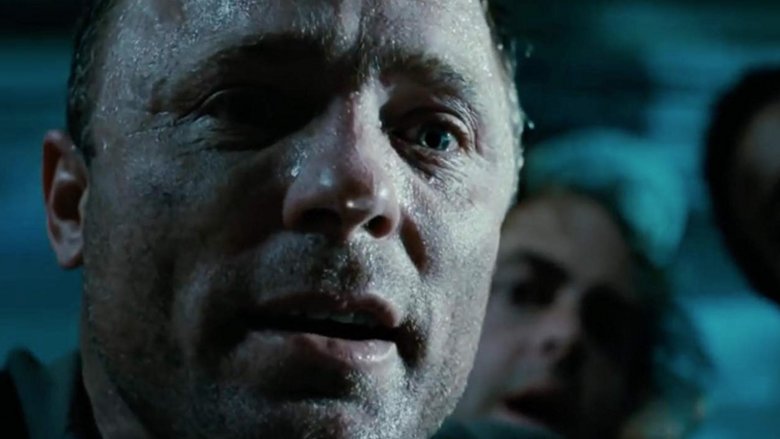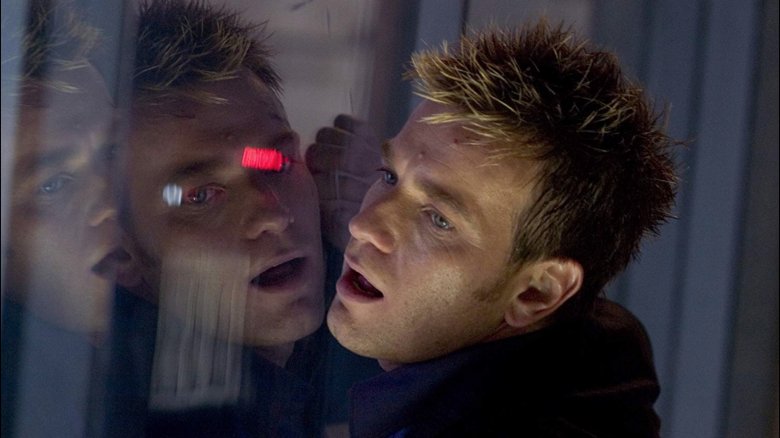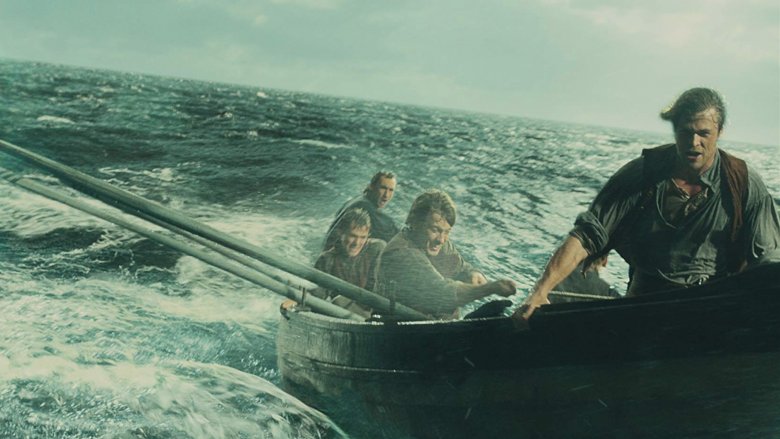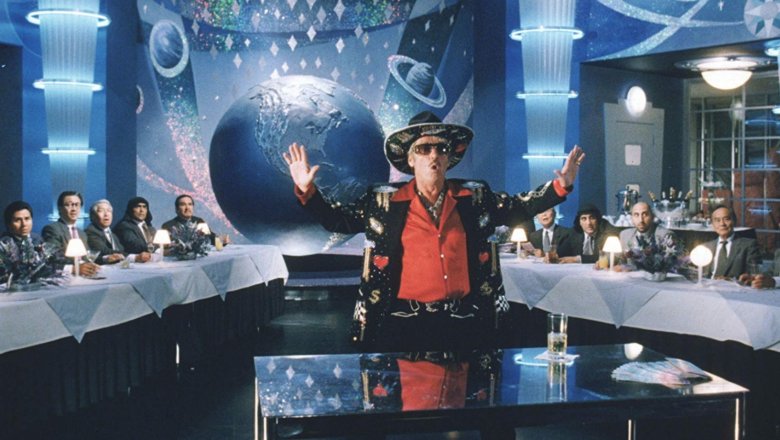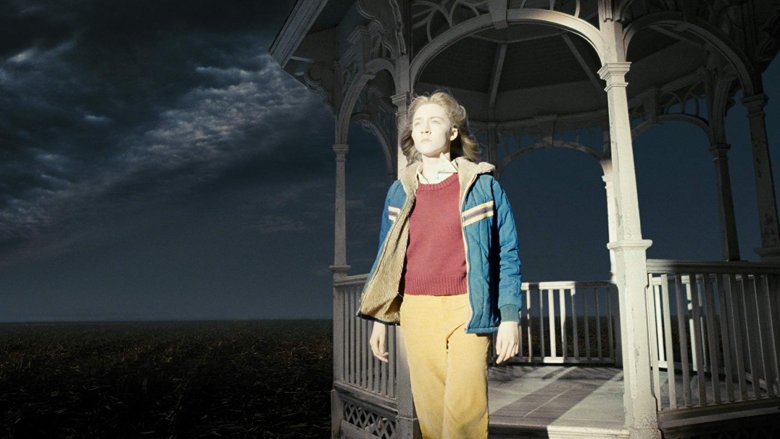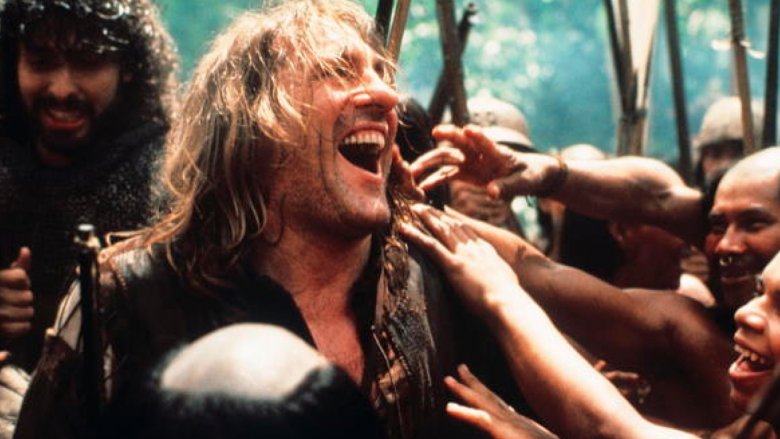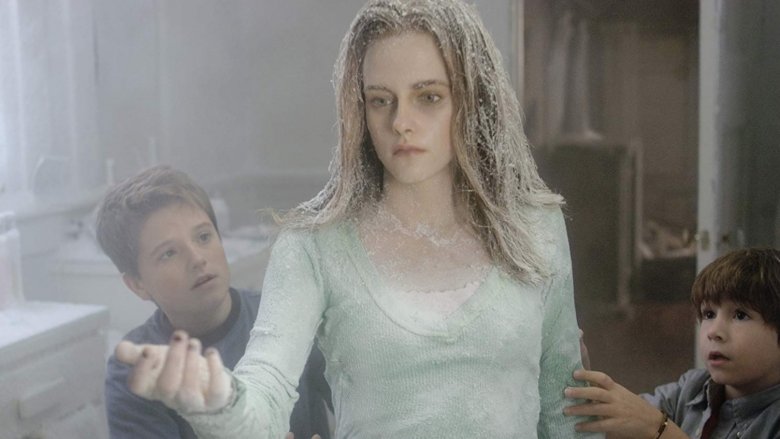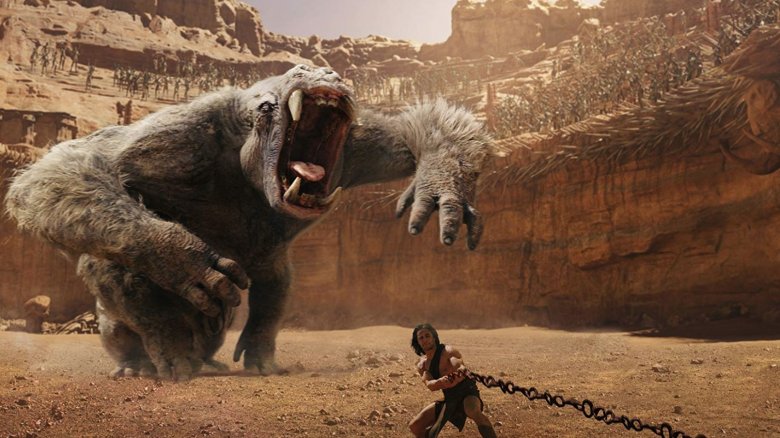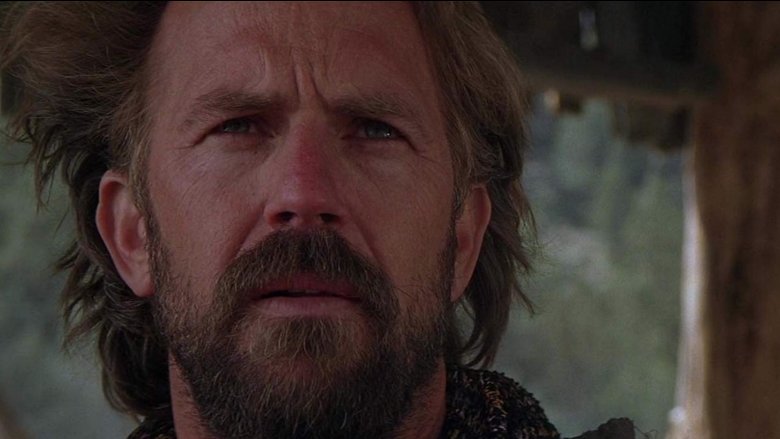Famous Directors' Biggest Box Office Bombs
You can't always predict whether a movie is going to succeed or fail at the box office. While there are some future films that are obviously going to flop, by and large predicting box office bombs is kind of a crapshoot. After all, why would a multibillion dollar corporation spend the GDP of a small country on a film destined to lose money? Sure, La-La-Land can be a pretty kooky place sometimes, but that's just nuts. This isn't The Producers, where studios can make more money with a flop than a hit. Studios need their movies to succeed to keep the lights on... and to sell toys. Lots and lots of toys.
One of the most reliable predictors for whether a film will succeed or fail is the director. Famous directors got that way for a reason — they have a track record of producing hits. If they didn't, they would be sent packing back home to Boise to direct commercials for used car dealerships. But even famous directors can fail. Every director, no matter how popular, has a few turkeys on their resume. Most of these bombs weren't career killers. Some may have even saved their directors' careers by teaching them a lesson in Hollywood's rarest commodity: humility. No matter how rich, famous and talented you are, nobody is perfect. This list proves it. Here are famous directors biggest box office bombs!
Steven Spielberg goes to war
Steven Spielberg was riding high in 1979. He had made his big screen debut with The Sugarland Express, a Goldie Hawn vehicle that didn't exactly break records, but earned back its budget. Then he changed the cinematic landscape with Jaws. Then he did it again with Close Encounters of the Third Kind. Then he turned 32. Seriously, the dude was a prodigy. Since it appeared that anything Spielberg touched turned to box office gold, Universal and Columbia figured, "Hey, let's give the kid $35 million to make a comedy about World War II." For the inflation nerds, that's more than $115 million today. The result? 1941.
In addition to Spielberg directing, 1941 had a lot going for it. Robert Zemeckis (who would go on to direct Back to the Future) wrote it, and SNL stars John Belushi and Dan Aykroyd had lead roles. While the film is remembered as a failure, its reputation is worse than the reality. 1941 has since received a much-deserved reappraisal. That said, 1941 does suffer from one glaring problem: it's a comedy that isn't funny. Like really, really not funny.
While 1941 didn't kill Spielberg's career, it dramatically underperformed compared to his previous offerings. Spielberg would go on to direct much bigger bombs (exhibit A and B), but 1941 was significant because it proved the wunderkind was human after all. He then followed 1941 up with Raiders of the Lost Ark and E.T., proving that no, never mind, he's not human.
James Cameron falls into The Abyss
James Cameron brought us the two highest grossing films of all time. Let that sink in for a second. Not Marvel. Not Disney. Not even Star Wars. James Cameron. One is a melodramatic retelling of a sinking ship with Lifetime-level dialogue. The other stars ten-foot-tall blue aliens. How did this happen? We're not sure. Maybe Cameron sold his soul to the devil? Somebody should look into that.
Cameron seems to have a supernatural ability to make Na'vi salad out of Na'vi you-know-what. But before he was the King of the World, he was just another hotshot director who needed to eat some crow. That crow was The Abyss. Following The Terminator and Aliens, it appeared Cameron could do no wrong. With that in mind, 20th Century Fox gave him nearly $70 million dollars (about $130 million today) to make The Abyss, in which Ed Harris and Mary Elizabeth Mastrantonio play a bickering divorced couple facing off against an aquatic lifeform. Sounds like The Life Aquatic with Steve Zissou when we put it that way.
While Harris and Mastrantonio are fine actors, they aren't Arnold Schwarzenegger or Sigourney Weaver, the ticket-selling stars of Cameron's previous two films. Despite what he may have thought, Cameron's name alone wasn't yet enough to sell a movie. While The Abyss was a landmark in special effects, it only earned $90 million worldwide. Instead of going back in time to stop himself from directing The Abyss, Cameron decided to direct Terminator 2 instead.
Michael Bay bombs big time
Michael Bay will probably never be a critical darling. Bay has even been compared to Satan himself. But while critics hate him, audiences love him — or at least the explosions, car chases and scantily-clad women which populate his movies. By the mid-2000s, Bay was in the midst of an unprecedented run of ten years with five straight blockbusters. Not even Spielberg or Cameron can lay claim to that. But one thing was missing: critical respect. Bay hoped to achieve both box office glory and the critical adoration he craved with a creatively risky, high-concept, contemplative (for Bay, at least) sci-fi thriller... that still had explosions, car chases and scantily-clad women.
The Island has earned the distinction of being Bay's first bomb. Set in 2019, The Island stars Ewan McGregor and Scarlett Johansson as two clones who are bred for the specific purpose of supplying body parts for rich and famous people. Heady stuff. It's a cool concept, but one that demands a subtle touch. Michael Bay, meanwhile, has all the subtlety of a flaming battle axe-wielding space robot shooting laser-guided rockets from his eyes.
The end result is an out-there sci-fi film directed by an outrageous madman — like Stanley Kubrick as interpreted by Zac Snyder, if you will. Maybe in another universe, The Island was called Clone Wars, starred Will Smith and Mark Wahlberg, and became a multi-million-dollar global blockbuster. But alas, in our universe, The Island bombed with a $35 million domestic gross on a $126 million budget.
"Thar this movie blows!"
Ron Howard began his showbiz career as a child actor, but became an A-List director with quintessential flicks from the '80s (Splash), '90s (Apollo 13) and 2000s (A Beautiful Mind). While no one would likely claim he's the greatest director ever, he is reliable in a pinch, which is why he was chosen to rescue — er, direct — Solo: A Star Wars Story after it spiraled out of control. We won't pick on Ronny for that one, as its lackluster performance wasn't his fault. We will, however, pick on him for In the Heart of the Sea.
It stars Chris Hemsworth, who hasn't really had a hit that doesn't involve him wielding a magic hammer. In fact, just before In the Heart of the Sea, Howard directed Hemsworth in another contender for both men's biggest bomb, Rush. Rush's performance was not great, but it was not the whale of a flop that was In the Heart of the Sea, which earned $93 million worldwide on a $100 million budget. Spending that kinda money to make a movie based on the true story behind a book most of us slept through in high school (Moby Dick) was always risky. Maybe if In the Heart of the Sea were good, it would've done okay. Instead, it stunk, so any chance that it might have had legs (or fins) was obliterated... especially when the quiet little indie drama Star Wars: The Force Awakens opened the following week.
Tim Burton's extraterrestrial comedy crash lands
Tim Burton is an enigma. Hot take, we know. Despite making weirdly personal and even freaky films, his movies still manage to make a lot of money... most of the time. Considering the guy made a movie about an emo android with scissors for hands into a hit, Burton's biggest bomb is all the more surprising. On paper, it sounds like a sure thing.
Mars Attacks came out in December 1996, a few months after Independence Day became the biggest hit of the year and one of the defining movies of the decade. Independence Day seemed to prove alien invasion pics were potent at the box office, so Burton's comedy/horror/sci-fi spoof seemed like a no-brainer. Based on the 1960s trading card series, it was directed by a man tailor-made for the campy, tongue-in-cheek material. It also featured an all-star cast, including Jack Nicholson, Glenn Close, Danny Devito, and Pierce Brosnan. Heck, even Tom freaking Jones is in it! What could go wrong?
Nothing, except critics hated it and audiences skipped it. Despite the star power both in front of and behind the camera, Mars Attacks only managed to earn $37 million at the domestic box office, less than what Independence Day made in its opening weekend alone. It wasn't the alien invasion genre that was at fault, as Men In Black made bank in 1997... however, Independence Day: Resurgence bombed domestically in 2016. We're left with one conclusion: If your movie has aliens, it should star Will Smith. Nod ya head!
Peter Jackson goes from Middle Earth to Kingdom Come
Before he made millions in Middle Earth, Peter Jackson made a string of low-budget flicks that didn't make much money, but showed his range as a filmmaker. One of those was Beautiful Creatures. Starring a pre-Titanic Kate Winslet as a murderer, Beautiful Creatures has the haunting quality of a dream. After directing the mega-budget tentpoles that were the Lord of The Rings trilogy and King Kong, Jackson returned to personal, intimate filmmaking with a similarly dark story, The Lovely Bones.
The Lovely Bones is about a murdered young girl's journey through the afterlife as she tries to help her loved ones move on, as well as find her killer. Everything Beautiful Creatures was, The Lovely Bones was not. Jackson hadn't quite gotten out of the habits of big-budget filmmaking, as he directed a pic with a $2 million story on a $65 million budget. The grand spectacle and overt sentimentality of his filmmaking distracted from the subtle touch that the tragedy of the story demanded. Critics helped kill it, and the film wound up making less than $100 million worldwide.
Sometimes more isn't better. Had Jackson spent less on The Lovely Bones, it might have done better at the box office. But rather than trying to helm another intimate film, Jackson returned to Middle Earth, turning one Tolkien book into three epic-length movies. Billions of dollars later, Jackson seems right where he belongs.
1,492 reasons Ridley Scott's Columbus movie bombed
Despite his critical and commercial success, Ridley Scott is no stranger to box office bombs. It seems like every time he has a hit, he likes to follow it up with a turkey. Even one of his most famous movies (and the one considered by many to be his masterpiece), Blade Runner, bombed when it was released in 1982. There are quite a few contenders for the title of Ridley's Top Turkey, including Someone to Watch Over Me, White Squall, A Good Year and The Counselor. Topping this less-than-illustrious list is a "winner" that could be described as a total trainwreck, except "boat crash" would be the better analogy. After all, it's a film about Christopher Columbus.
1492: Conquest of Paradise came out on the 500th anniversary of Columbus' famous voyage, and promptly sailed into oblivion. You'd be forgiven for never hearing about it; Scott certainly wishes you would. 1492 starred French movie star Gerard Depardieu as the famous explorer, and was made for a $47 million budget, or more than $80 million today. Despite its hefty price tag, 1492 grossed only $7 million. Really though, the filmmakers should have seen it coming. Another film was released a few months earlier that commemorated Columbus' voyage, Christopher Columbus: The Discovery. It too sunk faster than a ship with a hole in its side. You've probably noticed the lack of Columbus films since. Dude's box office poison.
Jon Favreau's bored game movie
Jon Favreau is another director who likes to bookend his blockbusters with bombs. Between Iron Man 2 and The Jungle Book, he made Cowboys & Aliens. Between Elf and Iron Man, he made what we consider his biggest bust, Zathura. You could argue that Cowboys & Aliens was a bigger bomb, but we're giving the less-than-illustrious crown to Zathura because the movie didn't break $100 million worldwide which, believe it or not, Cowboys & Aliens did. Really, Cowboys & Aliens' biggest sin was its $160+ million budget. Shave some of that off and it might have been considered a minor hit. Zathura was a bomb any way you look at it.
Zathura is about a couple of kids who play a board game, the titular Zathura, that blasts them into space, where adventure ensues. You can almost see the pitch for this movie — "It's Jumanji... but in space!" While Jumanji was a hit in 1995 and Jumanji: Welcome to the Jungle was an even bigger one in 2017, Zathura's box office take is worth less than Monopoly money. While critics liked the flick, it suffered from the lack of star power that a film without a built-in audience like this demands. Sorry, but Dax Shephard just ain't Robin Williams or the Rock. Zathura cost $65 million to make and only made $64 million worldwide. Maybe that $1 million is floating in space somewhere?
Scorsese's latest masterpiece opens to silence
Martin Scorsese is arguably the greatest director alive. As good as he is, one thing he has not always been is bankable. Sure, most of his movies have made money, and besides, studios don't mind losing a little bit to have "A Martin Scorsese Picture" in their lineup. As such, when considering his biggest bomb, you could make a case for New York, New York, The Last Temptation of Christ, Kundun, and Bringing Out The Dead.
We're giving the title of "Scorsese's Biggest Bomb" to his latest film, which may one day also be considered among his best. Scorsese had been trying to make Silence for more than three decades. While the film was his passion project, studios recognized that the story of Jesuit missionary priests being oppressed in feudal Japan would be expensive to produce and offer limited financial upside.
Because of this, even Martin freaking Scorsese had to wait to make his dream project a reality. But after a string of hits in the 2000s (mostly starring Leonardo DiCaprio), Paramount finally coughed up the $50 million so Marty could make his movie. And as predicted, the film bombed, making just $7 million domestically and $23.7 million worldwide. No hard feelings, though — Netflix has reportedly given Scorsese nearly $200 million to make The Irishman, so we'll soon see if Marty has another masterpiece in him.
Stanton reaches for the stars, only gets to Mars
Even the Mouse House makes a turkey now and then. Edgar Rice Burroughs' John Carter of Mars had been sitting in development hell for years, and Disney probably wished it stayed there. John Carter was finally released in 2012 as director Andrew Stanton's live-action debut. Stanton was a star director at Pixar, with Finding Nemo and WALL-E on his resume. Giving him the reins seemed like a safe-ish bet. Disney and Stanton soon learned how different directing an animated film was from a live-action one.
John Carter's budget reached an astronomical $250 million. Who knew making an epic, CG-heavy movie about a distant civilization on freaking Mars would be so expensive? In fact, John Carter's price tag makes it one of the most expensive movies of all time, which is all the more incredible considering it is one of the few on that list that isn't a sequel. The film only made $284 million worldwide, most of it overseas — not nearly enough to break even when burdened with Disney's exorbitant marketing costs.
Stanton learned his lesson and went back to directing animation, with 2016's Finding Dory becoming Pixar's then-biggest hit ever (until it was eclipsed by Incredibles 2). It took Disney a few more socks in the teeth to learn its lesson, most notably with the $215 million The Lone Ranger, which made only $260 million worldwide. Rather than keep making big-budget action movies, Disney decided to just buy Marvel and Lucasfilm instead.
Costner's $80M sci-fi epic about a mailman (you can' t make this up)
It has been said that an actor who directs himself has an egomaniac for a director. What does that say about an actor/director who makes a three-hour, $80 million epic in which not only is he the hero, but the movie actually ends with a statue built to honor him? Well, you can't accuse Kevin Costner of being modest.
Back in 1990, Kevin Costner had one of the most impressive directorial debuts ever with Dances With Wolves. Not only did the film snag Costner Best Picture and Best Director trophies, but it made $184 million (nearly $400 million today), making it the highest-grossing western ever. While this was an unprecedented achievement, Costner's next directorial efforts weren't so impressive. He was an uncredited co-director on what was then his biggest flop as an actor, the notorious Waterworld (credited director Kevin Reynolds stormed off before the movie was complete, leaving Costner to finish). After that debacle, Costner must have figured he'd try his hand at post-apocalyptic sci-fi again with 1997's The Postman.
Costner plays the titular postman, a nomadic wanderer who travels across a dystopian landscape to deliver old mail and consequently rekindle civilization... or something. The Postman was overwrought, high-minded hubris that didn't deserve its titanic budget or runtime, and the film bombed with a $17 million tally. Speaking of Titanic, The Postman opened less than one week after James Cameron's historical epic set its course for box office history. Clearly audiences preferred one three-hour epic to the other.
Speed Racer crashes and burns
There are a few movies you can say had a definitive "Before" and "After" effect on the culture. The Matrix is one. It was a milestone in action and special effects filmmaking, with its style influencing action pics for the past two decades. We won't even get into its philosophy-laden storyline, as books have literally been written on the subject. Alas, the Wachowski sisters, the creative minds behind The Matrix, have yet to match its success creatively or commercially. On a few occasions, they've flat out face-planted, as with 2015's $176 million-budgeted Jupiter Ascending, which earned just $183 million worldwide. Believe it or not, that's not even their biggest bomb. That title belongs to 2008's Speed Racer.
Based on the landmark anime, Speed Racer was the Wachowskis' first new film after The Matrix trilogy ended in disappointment with 2003's The Matrix Revolutions. As huge anime fans, Speed Racer seemed like the perfect opportunity for the Wachowskis to earn back goodwill from their fanbase and attract a huge mainstream audience as well. However, Speed Racer crashed right out of the gate, opening to only $18 million and earning just $93 million worldwide, far below its $120 million price tag. The sisters followed Speed Racer up with bombs Cloud Atlas and the aforementioned Jupiter Ascending, leaving one to wonder if they should have just taken the blue pill and stayed inside the Matrix.


